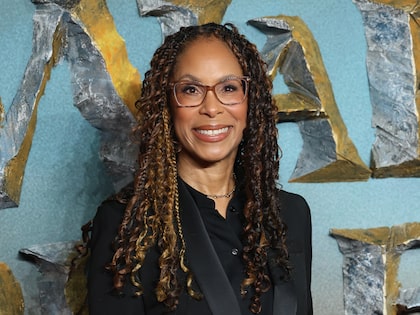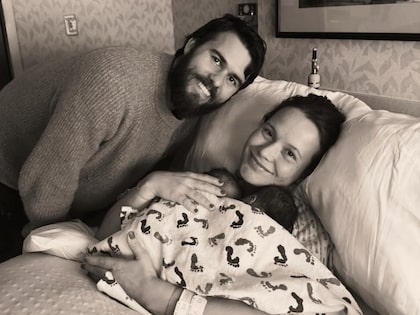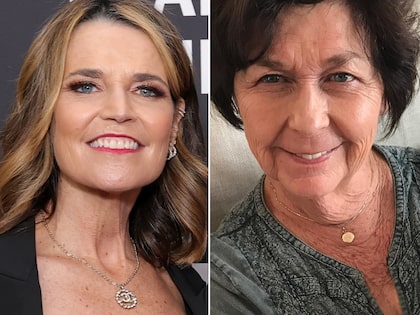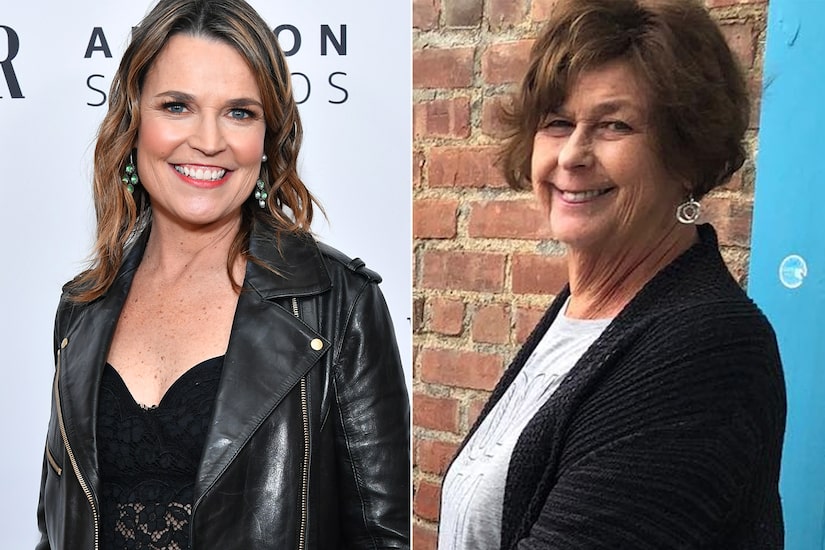Celebrity News July 26, 2020
Olivia de Havilland, Oscar Winner and 'Gone with the Wind' Survivor, Dead at 104
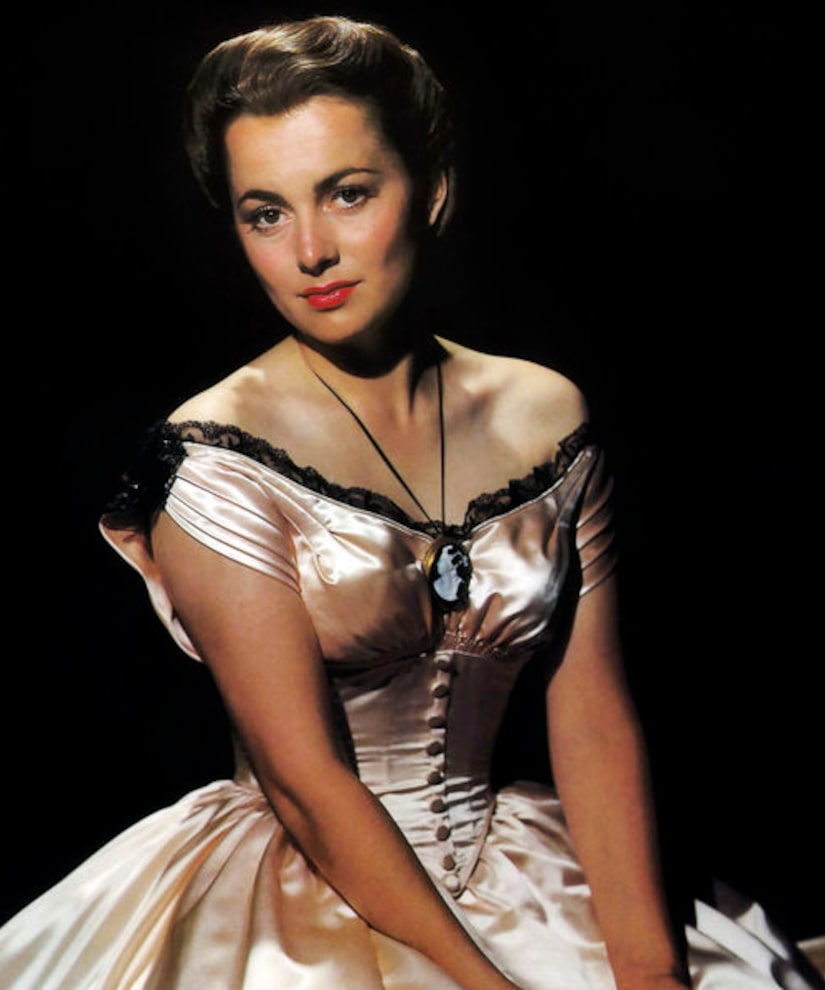 Getty Images
Getty Images
Olivia de Havilland, the elegant star of Hollywood's Golden Age — and one of its last surviving ambassadors — died Sunday of natural causes at 104.
Her publicist Lisa Goldberg confirmed de Havilland's death to The Hollywood Reporter.
De Havilland had celebrated her 104th birthday on July 1. At the time of her death, she had been the oldest living Oscar winner (that honor now belongs to 96-year-old Eva Marie Saint), and one of only two living credited cast members of the 1939 classic "Gone with the Wind" (the other being 87-year-old Mickey Kuhn, who played little Beau Wilkes).
 Getty
Getty
Acting Legend Kirk Douglas Dead at 103
View StoryDe Havilland was born in Tokyo on July 1, 1916, to British parents, 15 months ahead of her sister, Joan Fontaine, who would also go on to Oscar glory and longevity (she died at 96 in 2013). Her mother moved with the girls to San Francisco when they were toddlers, and her father abandoned the family for their housekeeper in Japan.
Raised to respect the arts, de Havilland made her amateur debut as an actress in a 1933 production of "Alice in Wonderland." A new stepfather forbade her from acting, threatening to bar her from the family home — so de Havilland simply moved in with a friend. Her interest in stage acting led to an understudy assignment as Hermia in a production of "A Midsummer Night's Dream." When the lead actress — Gloria Stuart, later of "Titanic" (1997) fame — departed, de Havilland inherited the role and excelled. The director adapted the Shakespeare as a film, resulting in de Havilland being offered a contract with Warner Bros. in 1934.
After the release of her debut in "A Midsummer Night's Dream," de Havilland nearly disappeared into undistinguished ingénue parts, but a starring role opposite Errol Flynn — her unrequited passion for him caused her to literally clutch her pearls at the memory in a TV interview over 40 years later — in "Captain Blood" (1935) put them both on the fast track toward superstardom. They became one of the screen's great duos, making eight films together, including the classic "The Adventures of Robin Hood" (1938), which established de Havilland as the definitive Maid Marian.
De Havilland became iconic with 1939's "Gone with the Wind," having been producer David O. Selznick's only pick to play "ideal Southern woman" Melanie Hamilton, and also having been one of the only actresses in Hollywood not interested in playing Scarlett O'Hara. Her work on the film earned her her first Oscar nomination, and her only for Best Supporting Actress. She lost to Hattie McDaniel, also for "Gone with the Wind," who made history as the first, and for many years the only, Black woman to win the Oscar.
"Gone with the Wind" in many ways defined de Havilland's later life — she regularly visited fan conventions to extol the virtues of the film, and was a sought-after speaker on the topic of what was considered by many to be the greatest film ever made. It is worth noting that she survived long enough to see a cultural re-examination of how "Gone with the Wind" presents race, and a controversy over the film's enduring appeal and legacy.
After appearing in other notable films like "The Private Lives of Elizabeth and Essex" (1939), "Hold Back the Dawn" (she lost a Best Actress Oscar for the 1941 film to her own sister, who became the only woman to win for an Alfred Hitcock movie, 1941's "Suspicion") and "Princess O'Rourke" (1943), de Havilland finished her contract with Warner Bros. only to discover it had been extended due to her frequent suspensions over creative differences with the studio. Like her friend Bette Davis had before her, de Havilland sued Warner Bros. Unlike Davis, she won, striking a blow for actors forced to endure restrictive contracts that threatened to decide the courses of their careers — or even to end them. The decision was regarded as a landmark in Hollywood history, and led to the seven-year rule — the De Havilland Law.
It also led to de Havilland losing work for years.
For de Havilland, it was worth it. As she recalled in 2006, she knew as early as age 18 that what she wanted out of life was "respect for difficult work well-done." She did not want to continue making substandard films to fulfill a contract, especially when she had demonstrated her abilities.
During her down time in the early '40s, de Havilland — who became a naturalized U.S. citizen in 1941 — threw herself into the war efforts, visiting soldiers and dancing with them at the Hollywood Canteen. She toured the U.S. and abroad to boost morale and was recognized toward the end of her life in part for her good work with France's Chevalier of the Légion d'honneur, a U.S. National Medal of the Arts, and was made a Dame Commander of the British Empire at 100.
Never known as one to kiss and tell, de Havilland nonetheless dated the likes of Howard Hughes, James Stewart, John Huston and screenwriter Marcus Goodrich. She married Goodrich in 1946, divorcing him in 1953.
When she resumed her acting career, it was with a bang — she won her first Oscar for Best Actress for "To Each His Own" (1946), about an unwed mother who gives up her child for adoption and has regrets. She was Oscar-nominated again for "The Snake Pit" (1948), which sensitively approached the issue of mental illness long before such portrayals were the norm, and won her second Best Actress Oscar for the film version of the play "The Heiress" (1949), which she had seen on Broadway and sought out as a vehicle for herself.
By the '50s, de Havilland's film career had cooled — mostly by design, as she'd become a mother and relocated to Paris to live with her second husband, Pierre Galante, an editor at Paris Match. She remained with him until his death at 88 in 1998.
Among her best work in the twilight of her career was in the drama "The Light in the Piazza" (1962), which was released the same year as her best-selling memoir "Every Frenchman Has One," about her efforts to adapt to Paris as an expat.
She continued working, logging starring roles in the cult-classic exploitation thrillers "Lady in a Cage" (1964) and "Hush... Hush, Sweet Charlotte" (1964), the latter of which found her replacing Joan Crawford and reuniting her with old friend Bette Davis. This and other aspects of the Davis-Crawford relationship were explored in Ryan Murphy's limited series "Feud" (2017) on FX. Portrayed by Catherine Zeta-Jones in the project, de Havilland was repulsed that the series besmirched her “professional reputation for integrity, honesty, generosity, self-sacrifice and dignity," and that it portrayed her as a gossip who called her sister Joan Fontaine — with whom she had a well-documented, decades-long feud — a "bitch." She was so incensed she sued, but she lost the suit, with the Supreme Court refusing to review it in 2019.
Already a movie icon, de Havilland became the first-ever woman jury president at the Cannes Film Festival in 1965.
De Havilland explored mental illness again, this time in her first TV movie, "The Screaming Woman" (1972). She also made a striking appearance in the miniseries "Roots: The Next Generations" (1979), made all the more resonant due to her identification with "Gone with the Wind."
The work she was offered was increasingly beneath her, including disaster movies like "Airport '77" (1977), in which she nearly went down with the airship, and the killer-bee flop "The Swarm" (1978), which offered her a delightful romantic triangle with Ben Johnson and Fred MacMurray, only to have all three die in a bee-driven trainwreck.
Following her last feature film, 1979's "The Fifth Musketeer," and limited TV work — she booked passage on "The Love Boat" in 1981, played the Queen Mother in 1982's "The Royal Romance of Charles and Diana," and appeared in the miniseries "North and South, Book II" (1986) and "Anastasia: The Mystery of Anna" (1986) — she ended her acting career with the 1988 TV movie "The Woman He Loved."
Her last public appearance was apparently at the 2011 César Awards in France, at which she received something to which she'd long grown accustomed — an extended standing ovation.

She is survived by her daughter, Gisele, her son-in-law Andrew, and her niece, Deborah.

















